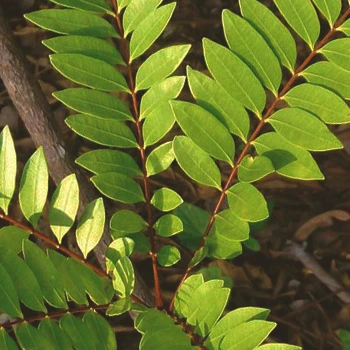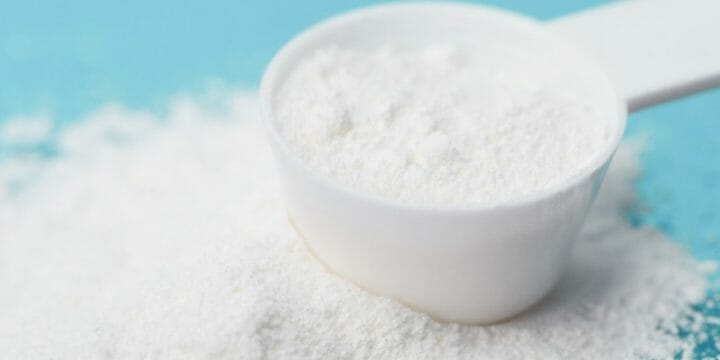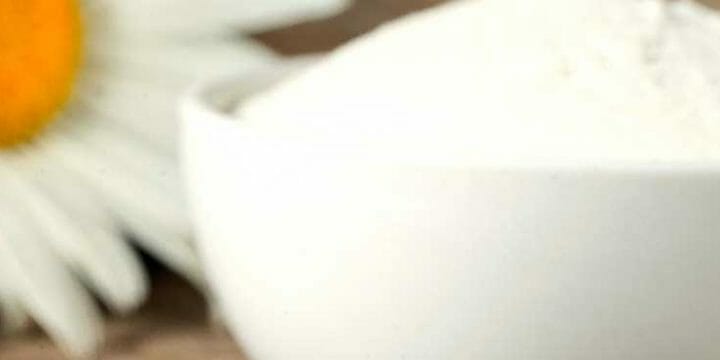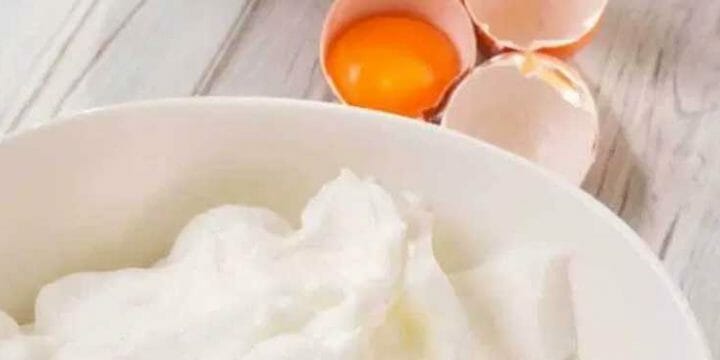Recent research shows that Tongkat Ali has the potential to combat the effects of declining testosterone.
So, as a certified fitness coach, I decided to explore that notion more thoroughly.
I spent several weeks reading the scientific research and consulted my close doctor friend to learn everything about the hormonal benefits of this herbal medicine.
Finally, with the help of a few clients, I tested Tongkat Ali's effectiveness.
In this article, I share the details of what Tongkat Ali is and its effects on testosterone.
Keep on reading.
Quick Summary
- Tongkat Ali is a herbal medicine used to treat illnesses such as fever and infertility.
- Tongkat Ali has biochemical substances such as eurycomanone that stimulate the adrenal and pituitary glands to produce more free testosterone.
- Tongkat Ali can raise testosterone levels by up to 37%, effectively normalizing it in over 90% of individuals.
- In my professional opinion, Tongkat Ali's potential to enhance athletic performance and muscle mass makes it a valuable supplement for fitness enthusiasts.
What Is Tongkat Ali?

According to the National Institutes of Health, Tongkat Ali, derived from Eurycoma longifolia jack roots, is a Southeast Asian herbal remedy for infections, fevers, and infertility [1].
A report from Researchgate explains that there are three species of plants commonly referred to as Tongkat Ali: Entomophthora apiculata, Goniothalamus, and Polyalthia bullata [2].
Tongkat Ali Eurycoma longifolia’s health advantages most likely derive from the plant's components.
In particular, it includes alkaloids, flavonoids, and other antioxidants.
Antioxidants protect cells from cellular damage produced by molecules known as free radicals [3].
Eurycoma longifolia root extract is usually consumed as tablets or as a herbal drink.
How Does Tongkat Ali Affect Testosterone?

Tongkat Ali boosts testosterone levels by up to 37%, normalizing it in over 90% of users [4].
Eurycoma longifolia extract improves sperm quality, tackling infertility from low testosterone, notably in late-onset hypogonadism [5].
The National Library of Medicine notes low testosterone can stem from aging, certain treatments like chemotherapy, medications, testicular issues, alcoholism, and sleep apnea [6].
Symptoms include low sex drive, erectile dysfunction, and sometimes infertility. Tongkat's chemicals, known to raise testosterone, may combat these issues [7].
Studies show Eurycoma longifolia jack in middle-aged male rats and humans boosts libido and erectile function [8], [9].
A study found from Researchgate with 108 men aged 30–55 taking 300 mg of the extract for 12 weeks saw sperm volume and motility increase by 18% and 44% [10]. These findings suggest it effectively tackles low testosterone and fertility issues in some men, but more research is needed.
Is Tongkat Ali Clinically Tested to Boost Testosterone?

Yes, Tongkat Ali has been clinically tested to boost testosterone naturally and has been shown to increase this hormone to normal levels in the body.
Several studies support the notion that Tongkat Ali extract increases free testosterone, total testosterone, dihydrotestosterone (DHT), and dehydroepiandrosterone (DHEA) [11].
"Tongkat Ali, like testosterone replacement therapy, may increase testosterone by boosting DHEA levels, and it also acts as an adaptogen, assisting the body in dealing with moderate stress hormones and lowering cortisol. Most studies appear to suggest a good influence on libido as well."
- Amber Smith, Doctor of Medicine
Between 2000 and 2021, studies showed free testosterone increases from 15% to 600% in both genders, depending on dosage and duration.
A 24-week study on 50 mg Physta Tongkat Ali with multivitamins reported up to 582% and 600% increases in male and female free testosterone, respectively [12].
Tongkat Ali contains eurycomanone, which activates the pituitary and adrenal glands, enhancing free testosterone production via sex hormone-binding globulin (SHBG). A 2021 study confirmed Eurycoma longifolia jack's steroidogenic effects in young males, likely due to stimulated hormone production in the hypothalamic-pituitary-adrenal axis [13].
Related Article: What Vitamins Increase Testosterone?
Other Benefits of Tongkat Ali

Other supposed health benefits of Tongkat Ali extract have not been well explored. However, some studies indicate that it may assist in boosting the psychological mood state and muscular mass.
Improved Body Composition
Tongkat Ali Eurycoma longifolia is often touted for enhancing athletic performance and muscle mass. I've noticed a marked improvement in my endurance and muscle tone since incorporating Tongkat Ali into my regimen.
This is due to the presence of quassinoids, which include eurycomanone, eurycolactone, and eurocomaoside.
These may assist your body in utilizing energy efficiently, minimizing fatigue, and enhancing endurance [14].
In other words, the supplement might work as an ergogenic aid, a drug that improves athletic performance and muscle mass [15].
A brief 5-week trial examined 14 moderately stressed subjects in a strength-training program.
The trial indicated that individuals who consumed 100 mg of this standardized water-soluble extract of Eurycoma longifolia daily increased their lean body mass much more than those who received a placebo.
They also burned more fat than the placebo group members [16].
Improved Libido and Sperm Health

Another well-known effect is its capacity to boost sexual desire, sexual performance, and erectile firmness and regulate reproductive hormones.
In addition to that, it has also been demonstrated to improve male sperm viability and fertility.
"Tongkat Ali extract can boost spermatogenesis and may function as a pro-erectile drug. At least one compound of Eurycoma longifolia (9-hydroxycanthin-6-one) has been linked to both ejaculation delay and pro-erectile characteristics."
- Kamal Patel, Master of Public Health
One randomized clinical trial looked at the impact of Eurycoma longifolia (Tongkat Ali) on the erectile role and whether it can increase testosterone levels in aged males with androgen deficiency.
It was discovered that males who combined concurrent training with Eurycoma longifolia improved their sexual well-being [17].
Reduced Stress
One research on Sports Nutrition looked at stress hormones in 63 participants who took Tongkat Ali extract or just a placebo for four weeks.
According to the study, the extract significantly reduced people's anger, stress, and uncertainty.
The stress hormone cortisol dropped while testosterone levels surged.
They concluded that Tongkat Ali might be a promising treatment for modern psychological stress, sleep disturbance, and exercise regimen [18].
Eurogenic Aid

Athletes occasionally use ergogenic aids to improve their performance.
Based on one 2016 review, Eurycoma longifolia may work as an ergogenic aid since it relieves anxiety and boosts levels of testosterone.
The researchers found that Eurycoma longifolia may have some effect on endurance activities with high doses and long-term intake [19].
Who Should Consider Taking Tongkat Ali?
People who experience problems with low testosterone, low libido, or infertility should consider taking Tongkat Ali (Eurycoma longifolia jack).
According to some studies, it may also lower anxiety and enhance body composition.
While the product appears to be safe at dosages up to 400 mg daily, research is minimal, and published studies concentrate on short-term usage.
Therefore, it is unknown if using the supplements for prolonged periods is effective or safe.
If you’re thinking about taking this product, talk to your doctor first to ensure it's safe for you.
Dosage and Side Effects of Taking Tongkat Ali

Tongkat Ali is typically taken in 200-400 mg daily doses. Caution is advised, particularly for the elderly and those with weak immune systems, hypoglycemia, or blood pressure issues.
Pregnant or nursing women, children, and individuals with hormone-sensitive cancers or heart or kidney diseases should avoid it.
Excessive use can cause insomnia, restlessness, and increased heart rate [20]. It's essential to adhere to the recommended dosage and consult a healthcare professional before use, especially if you have pre-existing conditions or are on medication.
FAQs
Does Tongkat Ali Raise Testosterone?
Yes, Tongkat Ali may raise testosterone, aid in treating male infertility, decrease stress, and boost muscle mass.
How Long Does It Take for Tongkat Ali to Raise Testosterone?
It may take Tongkat Ali two to 24 weeks to raise testosterone significantly.
Is Tongkat Ali Good for Erectile Dysfunction?
Yes, Tongkat Ali is good for erectile dysfunction (ED). Since it increases testosterone, it can treat ED.
How Reliable Is Tongkat Ali?
Tongkat Ali is a solid supplement that may boost your testosterone, libido, and fertility and improve your body composition.
However, I advise going for a high-quality testosterone booster when it comes to long-term reliability and effectiveness.
It can perform the functions of Tongkat Ali and has other beneficial ingredients that can aid your general health.
When testing these supplements, I had my testosterone levels checked regularly, and week after week, the lab results indicated a stable increase until my levels reached a healthy range for my age. My client's experiences aligned closely with mine.
References:
- https://www.ncbi.nlm.nih.gov/pmc/articles/PMC6274257/
- https://www.researchgate.net/publication/318077514_
- https://www.ncbi.nlm.nih.gov/pmc/articles/PMC3249911/
- https://pubmed.ncbi.nlm.nih.gov/21671978/
- https://www.ncbi.nlm.nih.gov/pmc/articles/PMC3739276/
- https://www.ncbi.nlm.nih.gov/pmc/articles/PMC4707424/
- https://pubmed.ncbi.nlm.nih.gov/24386995/
- https://pubmed.ncbi.nlm.nih.gov/10803359/
- https://pubmed.ncbi.nlm.nih.gov/23243445/
- https://www.researchgate.net/publication/233931841_
- https://pubmed.ncbi.nlm.nih.gov/23754792/
- https://www.ncbi.nlm.nih.gov/pmc/articles/PMC6294837/
- https://pubmed.ncbi.nlm.nih.gov/33559971/
- https://www.ncbi.nlm.nih.gov/pmc/articles/PMC5214558/
- https://www.researchgate.net/publication/285180367
- https://www.ncbi.nlm.nih.gov/pmc/articles/PMC3669033/
- https://pubmed.ncbi.nlm.nih.gov/33541567/
- https://www.ncbi.nlm.nih.gov/pmc/articles/PMC3739276/
- https://www.ncbi.nlm.nih.gov/pmc/articles/PMC5214558/
- https://pubmed.ncbi.nlm.nih.gov/26978330/
About The Author
You May Also Like






